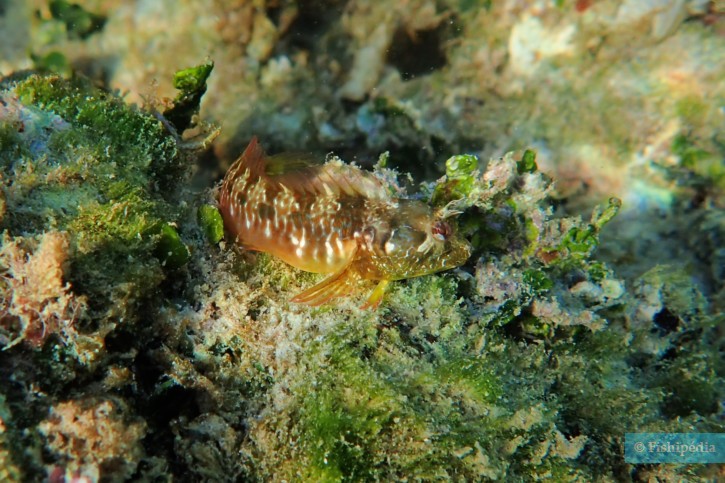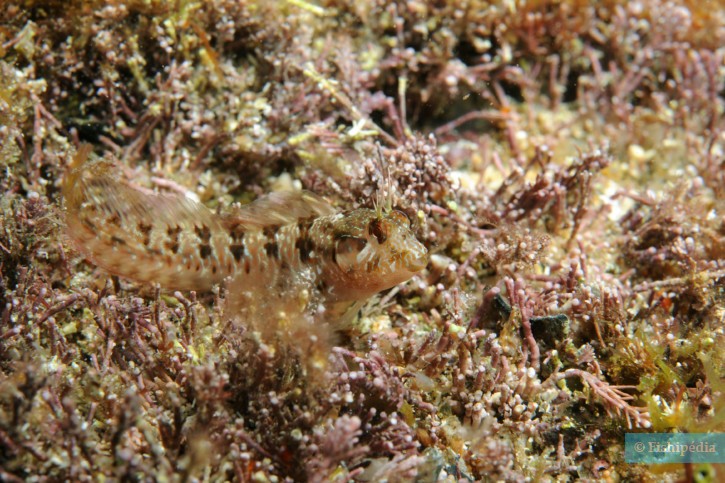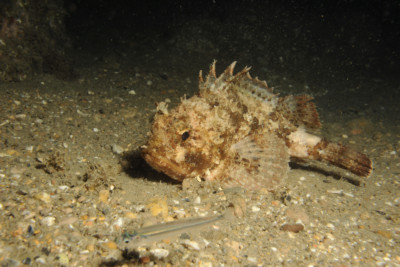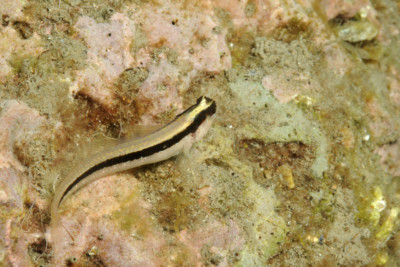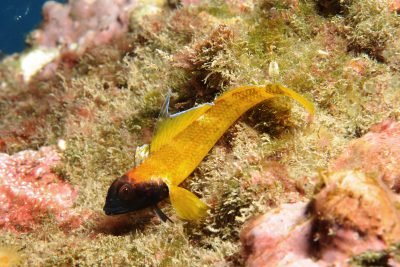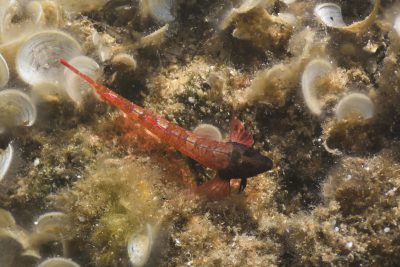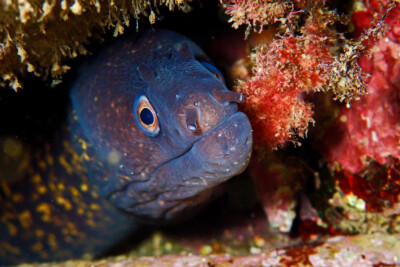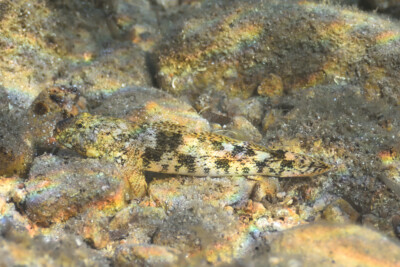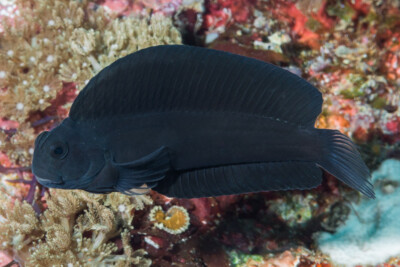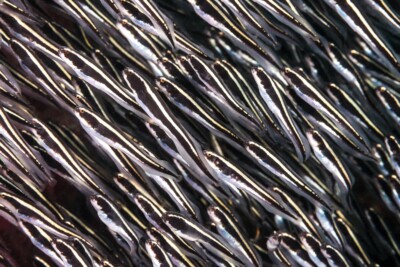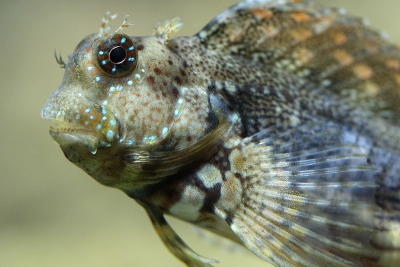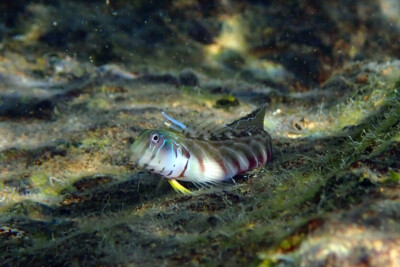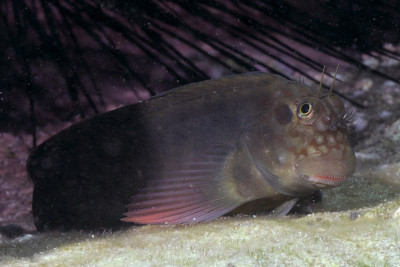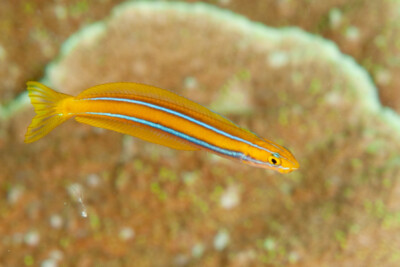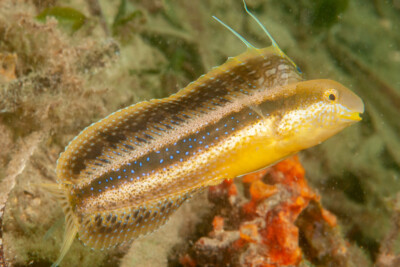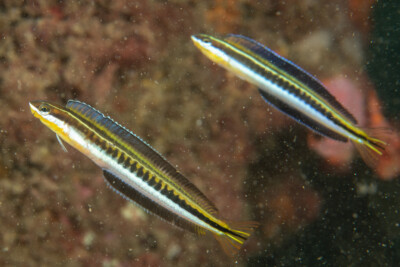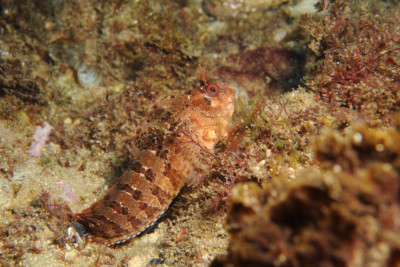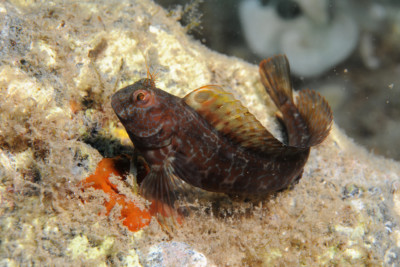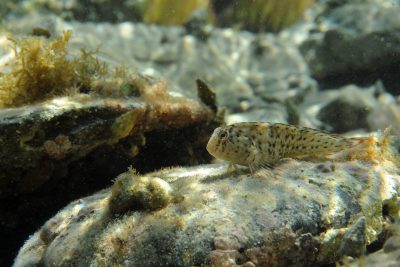blennie diabolo
| Scientific name | Parablennius incognitus |
|---|---|
| Descriptor | Bath |
| Year of description | 1968 |
| IUCN category (World) | LC |
| Family | Blenniidae |
| Genus | Parablennius |
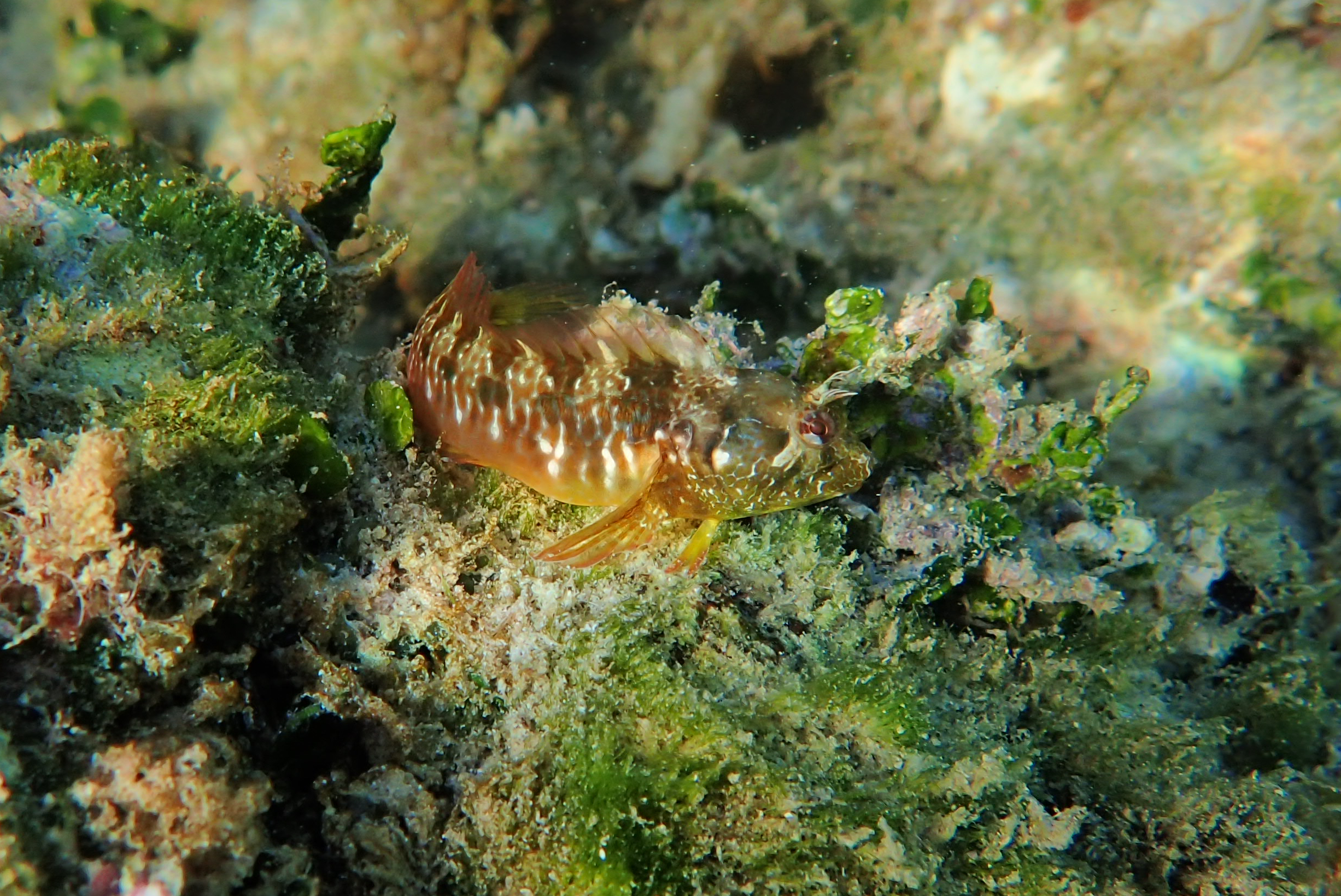

Introduction
The diabolical blenny is a small fish found along the coasts of the Eastern Atlantic Ocean to the Black Sea. It is one of the most common species in the seaside.
Who is it?
Morphology
-
Average size6 cm
-
Maximum size8 cm
-
ShapeRectangular
-
Mimicrystone
-
Patternhorizontal stripes
-
Average size6 cm
-
Maximum size8 cm
-
ShapeRectangular
-
Mimicrystone
-
Patternhorizontal stripes
How to recognize This fish ?
The diabolical blenny is elongated, laterally compressed. The body is light beige to dark beige, sometimes marbled with red. Some rare male specimens may have a red coloration during the breeding season.
This species has 7 to 9 dark stripes on its sides. The nose is striped with thin blue and red bands, the upper lip is much more developed than the lower lip. The eyes are topped with 4 to 5 tentacles, the first of which is longer.
Sexual dimorphism
In addition to brighter colors during the breeding season, males have a more developed supraocular tentacle above each eye compared to females.
Behaviour & Life cycle
-
dietomnivorous with carnivorous tendency
-
Sociabilitysolitary
-
territorialYes
-
Way of livingdiurnal
The diabolical blenny is a solitary fish. Although it has a rather calm temperament with most species, it is less tolerant of males from the same family, especially during the breeding period.
Like other blennies, the lack of a swim bladder makes swimming in open water awkward; this species moves from one rock to another in short swimming periods.
Reproduction
-
Reproductionovipare qui pond sur substrat caché
The Diabolical blenny is an oviparous fish that lays its eggs on covered substrate, in a cavity or shell, from May to July.
Males establish a territory around a chosen spawning area. They then display to each passing female. Once a partner is chosen, the females lay eggs in the cavity. The male, after fertilizing the eggs, guards the eggs until hatching.
The larvae are then pelagic.
Harmless species
This species does not represent any particular threats to humans when encountered in its natural environment.
Origin and distribution
Conservation status of populations (IUCN)
What is its habitat?
Natural environment characteristics
-
Depth0 - 2 m
Biotope presentation
The diabolical blenny is most commonly found between one and two meters deep. It is generally encountered on or between rocks along the seaside.
This species is not very shy.
Species of the same biotope
Fishkeeping
Not recommended
We do not recommend keeping this species in an aquarium. It has unpredictable needs which, if not met, generate significant stress, potentially leading to a shorter life expectancy, an interruption of its growth or the development of pathogens.
To go further
Sources & Contributions
Participation & Validation
The Fishipedia team and specialist contributors are committed to providing high-quality content. However, although the information comes from scientific sources or testimonials from specialists, the cards may contain inaccuracies.

Adrien Falzon

Benoit Chartrer
Translation
Translation done with the valuable contribution of our translators, who make this information available to a wider audience. We sincerely thank them for their commitment.
Scientific partners
Tags
Species of the same family
Same genus
Species of the same biotope
